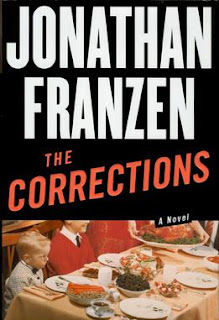I read The Corrections for the first time ten years ago. I didn’t enjoy it, maybe I didn’t really understand it, so I stashed it away and forgot about it. Epics make for great summer reading so I decided to give it another go, considering I always loved Franzen’s other work, especially Freedom. For whatever reason, I barely remembered any of it. I thought it took place in the run up to the 2008 financial crisis, but it concerns itself with the 2000 tech bubble instead. Most of the scenes, and even many of the characters felt completely new. I might as well have read it for the first time now.
The premise feels somewhat conceited - a mid-western family gathers for one last Christmas together - which I still find off-putting. Once you jump in, however, it quickly becomes clear that Christmas is perhaps the least important theme in a book chock-full of late 90s Americana. Enid and Alfred Lambert are the ageing parents of Gary, Chip and Denise. Alfred’s declining health (Parkinson’s and dementia) forces the family to confront lingering conflicts as it prepares for the holiday season. Chip has lost his comfortable academic job after a very ill-advised affair with a student. Gary treats his proto-depression with alcohol and tries to maintain his status as head of his own family. Denise is a higly successful chef but can’t bring herself to live an otherwise normal life.
Chapters run for a hundred pages or so and focus on one family member at a time. Alfred is, perhaps, the most compelling character. A stoic, once handsome man, he’s perpetually misunderstood by his wife and children. Enid married him for the looks and the comfortable income of a mid level executive. Gary can’t see past Alfred’s disease and Chip thinks Alfred disapproves of his career. Yet, the man himself is burdened by a debilitating disease and an introverted personality. His grumpiness and distant demeanor are a reflection of his inner life and not his attitude towards others. In his actions, he is loving and dependable. In his words, he is angry and sometimes confused.
In the end, the correction is inevitable. Denise is fired from her restaurant for seducing the owner’s wife. Chip’s surreal Lithuanian detour comes to an abrupt end, and so on. Each of the Lamberts is forced to reckon with the consequences of delaying and ignoring the inevitable. It’s not unlike a parable. Each of the characters is seduced by greed or power or lust or denial. Their ploys work - Enid forces Alfred on a cruise even as his health deterioirates - for a time. The tension grows, as the reader starts expecting the unforgiving backlash that is sure to follow.
I was most surprised by how topical The Corrections still is. It’s fitting that I thought it took place in 2008. Greed, especially, is ubiquitous as everyone and their neighbor is making money in a rising market. In 2000, the mechanism was technology stocks. In 2008, it was homes. Today, once again, seeing others succeed drives us to reach too far, to take on too much risk and, inescapably, start the clock on another correction.
